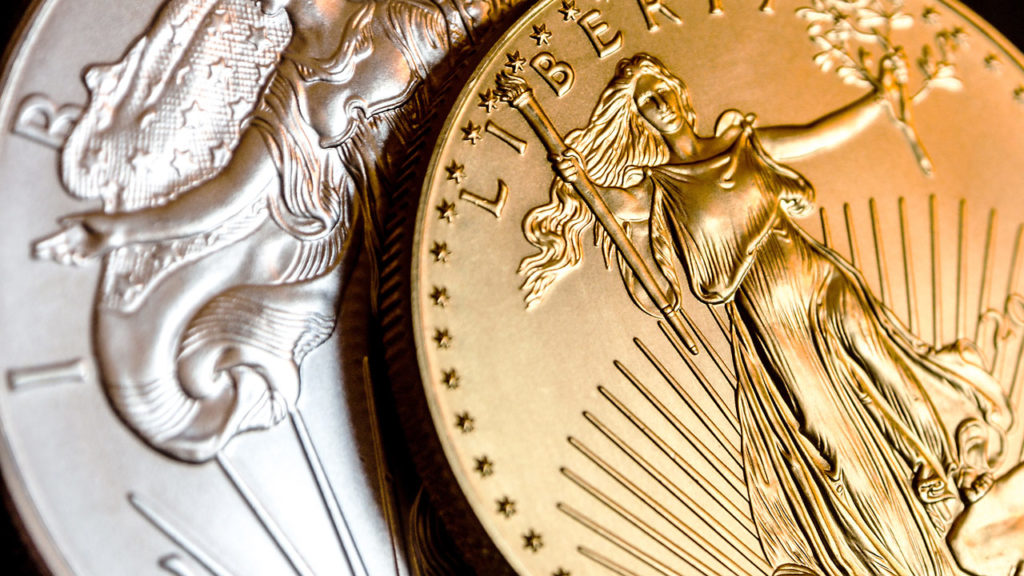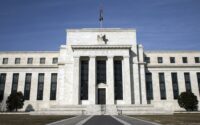Alabama and Virginia Extend Sales Tax Exemptions on Gold and Silver Bullion

Virginia and Alabama both extended their sales tax exemptions on precious metal bullion this year, relieving some of the tax burdens on investors, and taking a step toward treating gold and silver as money instead of as commodities.
Alabama Sen. Tim Melson (R-Florence) filed Senate Bill 13 (SB13) earlier this year. The new law extends the sales tax exemption on gold, silver, platinum and palladium bullion passed in 2018 from five years to 10. It also lowers the level of precious metal content necessary to qualify as “bullion” under the law from 90 percent to 80 percent.
In Virginia, Sen. Frank Ruff sponsored Senate Bill 26 (SB26). Del. Amanda Batten (R) sponsored House Bill 936 (HB936). A 2018 law exempted the sale of gold, silver, and platinum bullion or legal tender coins over $1,000 from the state sales tax. That exemption is scheduled to sunset on June 30, 2022. SB26 removes the sunset date, making the exemption permanent.
HB936 goes a step further and removes the $1,000 limit so all bullion transactions will be tax-free. But this legislation includes a sunset date of June 30, 2027.
In effect, with the enactment of these two bills, bullion sales over $1,000 will be permanently free from sales tax, and bullion transactions under $1,000 will be free from the sales tax until the 2027 sunset date.
The new taxing provisions go into effect July 1, 2022.
KNOCKING DOWN BARRIERS
To date, 41 states have eliminated sales taxes on gold and silver bullion. The only states still living taxes on the sale of precious metal bullion are Vermont, New Jersey, Maine, Tennessee, Kentucky, Wisconsin, New Mexico, Mississippi and Hawaii. The District of Columbia also taxes physical gold and silver purchases. A bill to repeal Tennessee’s sales tax on precious metal bullion has gone to the governor.
Sales taxes on gold and silver raise investment costs. Repealing these taxes knocks down one barrier that might keep some investors from considering physical metal for their portfolios.
Also, with the advent of electronic payment services, it’s easier than ever to use precious metals in everyday transactions. Companies like GoldMoney facilitate this. But taxes on precious metal bullion erect barriers to using gold and silver as money by raising transaction costs. Passage of these bills would take a small step toward undermining the Federal Reserve monopoly on money by eliminating one hurdle to using gold and silver in everyday transactions.
In effect, states that collect taxes on purchases of precious metals act as if gold and silver aren’t money at all.
Imagine if you asked a grocery clerk to break a $5 bill and he charged you a 35-cent tax. Silly, right? After all, you were only exchanging one form of money for another. But that’s essentially what a sales tax on gold and silver bullion does. By eliminating this tax on the exchange of gold and silver, states treat specie as money instead of a commodity. This represents a small step toward reestablishing gold and silver as legal tender and breaking down the Fed’s monopoly on money.
“We ought not to tax money – and that’s a good idea. It makes no sense to tax money,” former US Rep. Ron Paul said during testimony in support of an Arizona bill that repealed capital gains taxes on gold and silver in that state. “Paper is not money, it’s fraud,” he continued.
The impact of enacting this legislation goes beyond mere tax policy. During an event after his Senate committee testimony, Paul pointed out that it’s really about the size and scope of government.
“If you’re for less government, you want sound money. The people who want big government, they don’t want sound money. They want to deceive you and commit fraud. They want to print the money. They want a monopoly. They want to get you conditioned, as our schools have conditioned us, to the point where deficits don’t matter.”
Practically speaking, eliminating taxes on the sale of gold and silver cracks open the door for people to begin using specie in regular business transactions. This marks an important small step toward currency competition.
BACKGROUND
The United States Constitution states in Article I, Section 10, “No State shall…make any Thing but gold and silver Coin a Tender in Payment of Debts.” Currently, all debts and taxes in the US are either paid with Federal Reserve Notes (dollars) which were authorized as legal tender by Congress, or with coins issued by the US Treasury — very few of which have gold or silver in them.
The Federal Reserve destroys this constitutional monetary system by creating a monopoly based on its fiat currency. Without the backing of gold or silver, the central bank can easily create money out of thin air. This not only devalues your purchasing power over time; it also allows the federal government to borrow and spend far beyond what would be possible in a sound money system. Without the Fed, the U.S. government wouldn’t be able to maintain all of its unconstitutional wars and programs. The Federal Reserve is the engine that drives the most powerful government in the history of the world.
Sales tax repeals knock down one of the tax barriers that hinder the use of gold and silver as money, and could also begin the process of abolishing the Federal Reserve’s fiat money system by attacking it from the bottom up – pulling the rug out from under it by working to make its functions irrelevant at the state and local levels, and setting the stage to undermine the Federal Reserve monopoly by introducing competition into the monetary system.
In a paper presented at the Mises Institute, Constitutional tender expert Professor William Greene said when people in multiple states actually start using gold and silver instead of Federal Reserve Notes, it would effectively nullify the Federal Reserve and end the federal government’s monopoly on money.
“Over time, as residents of the state use both Federal Reserve notes and silver and gold coins, the fact that the coins hold their value more than Federal Reserve notes do will lead to a “reverse Gresham’s Law” effect, where good money (gold and silver coins) will drive out bad money (Federal Reserve notes). As this happens, a cascade of events can begin to occur, including the flow of real wealth toward the state’s treasury, an influx of banking business from outside of the state – as people in other states carry out their desire to bank with sound money – and an eventual outcry against the use of Federal Reserve notes for any transactions.”
Once things get to that point, Federal Reserve notes would become largely unwanted and irrelevant for ordinary people.
These bills make up part of a broader movement at the state level to support sound money.

Call 1-888-GOLD-160 and speak with a Precious Metals Specialist today!
[ad_2]
Source link

